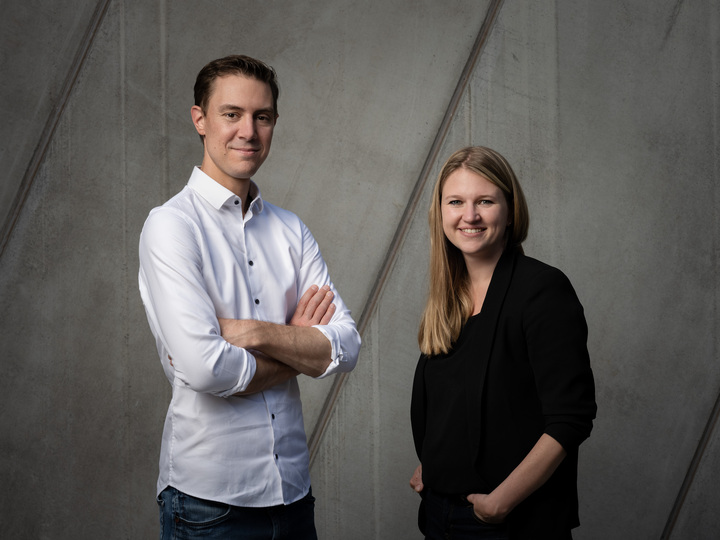Four years after I first explored the venture partner role, the position continues to be both coveted and misunderstood within the venture capital ecosystem.
As the VC landscape has matured and specialised, venture partner roles have similarly evolved — becoming more structured while remaining flexible entry points into the venture capital world. What was once a catch-all title has become more specialised.
The market contraction since 2021 has transformed the venture partner landscape from an attractive entry point into VC to a transitional role for those moving between positions. Compensation structures have become more formalised, but remain highly variable based on firm type, geography, and investment stage.
What is a venture partner?
A venture partner remains fundamentally a professional associated with a VC firm who works with limited scope compared to general partners. These individuals operate in the space between full investment partners and advisors, typically offering specialised expertise, networks or operational experience.
Back in 2021, the VC world had gotten pretty crowded, and funds needed to stand out somehow. More firms brought on venture partners as a way to differentiate themselves. Even though the venture industry has hit a rough patch in the last years, the trend continues.
Venture partners can be part-timers or full-timers, and they might work with a fund for a few months or several years. What they actually do depends entirely on the fund — some help source deals, others support portfolio companies and the best ones might be involved across the entire investment process.
It’s a broad term, which makes it tough to "discern the true scope of their contributions from an external perspective," says Michael Münnix, who hired venture partners as a managing partner at Target Partners, and held the role himself at Planet A Ventures. The role is also frequently used as a “trial phase for potential general partners,” he says.
Others bring on a venture partner to bolster their firm’s resources. "We have only a very small team," says Gesa Miczaika, a managing partner who previously served as a venture partner before launching her own fund. "With our venture partner we further strengthen our brand, get portfolio support and additional deal flow, as well as additional expertise for evaluating potential investments."
"I got into this role because I had already switched sides from being a lawyer to the startup side," Sophie Pollok, venture partner at Auxxo Female Catalyst Fund, tells me. "As a lawyer, I had always advised investors and startups, so I was well-networked in the investor scene. After working in management at Choco during their growth from 50 to 700 employees, Auxxo reached out when they knew I was leaving. They saw my legal background as valuable for portfolio companies and their fund, plus my B2B SaaS experience in a hypergrowth environment.
"Initially, it was about looking at things with fresh eyes. For a small fund, it's valuable when someone examines internal processes and identifies improvements,” she says. “But now, I'm almost exclusively doing portfolio support and investment work, looking at deals when the topics fit my expertise."
How has the venture partner role changed?
The venture industries have converged over the last few years. European venture has matured, and job titles in funds now more closely resemble those of American investment firms; you now find junior investment team members with the title "partner”.
"Today it has become much more diverse,” says Miczaika. “Venture partners are often much more deeply involved in supporting portfolio companies. Many funds are also increasingly bringing venture partners on board for expertise in specific sectors."
Pollok has observed a growing specialisation trend: "Funds increasingly value domain expertise. For example, when evaluating B2B business models, it's incredibly helpful to have partners with relevant operational know-how who can be called upon. This specialisation seems to be growing in importance."
Münnix, who also founded his own fund Backtrace capital, says this specialisation is part of a broader, necessary shift in European venture capital: "I believe the European venture ecosystem is in need of a fundamental shift — one of the key reasons we founded Backtrace capital, a fund dedicated to sovereign tech infrastructure.
“To reestablish Europe as a player on the global stage, VCs must evolve beyond momentum-driven generalist investing and embrace a more specialized, conviction-led approach, grounded in deep expertise rather than FOMO."
It seems that "venture partner" is no longer being used as a general title but refers specifically to people who are involved in deal sourcing and transactions. In 2021, I identified these as "sourcing partners”. On the sourcing side, funds now employ venture partners, and some more community-oriented funds run a network of venture scouts. The latter are often unpaid but get the opportunity to participate in the fund network through events.
The recent contraction of the venture industry globally, and few funds being raised, has also meant that being a "part-time fundraising partner" is no longer seen as an interesting career path. Today, departing investment professionals may still work with their portfolio companies under the title "venture partner”.
"For some funds, the wide network of venture partners is often a strategy for further developing their own ecosystem and expanding their own sphere of influence," Miczaika says.
On the portfolio side, many funds have built networks of functional experts rather than relying on generalist operating partners. Since most European early-stage funds have started contracting out to advisors, they've also professionalised their advisor communities. Picus Capital calls them "Expert Partners," while Atomico brings them into its "Advisor Expert Network (AEN)."
Other firms have institutionalised their coaching programmes, like Cherry's Copilot and Balderton's Founder Wellbeing & Performance programmes.
"What's fascinating is how readily people share their expertise with business models you're not familiar with,” says Pollok of Auxxo’s external advisors. “There's a true give-and-take across the startup ecosystem — if you contribute, a lot comes back.”"
Many investors tell me that it's impossible to tie top advisors to their funds exclusively. As one put it: "Why would they be interested in an exclusive relationship when they could work with every fund out there? And if that's true, why would a fund settle for those who seem to need to associate with a specific fund?"
For Pollok, the flexibility of the venture partner role is a key appeal. "Initially, there was discussion about me potentially joining full-time when the fund grew large enough. But we always recognised that I wanted to maintain my other projects and continue developing in those areas too. The venture partner role is perfect because I can commit to a fund and team I believe in while not being exclusively tied to a 60-hour-a-week job. It allows me to stay connected across fund generations while pursuing my other interests."
More hands-on experience is finding its way into the role. The evolution of the ecosystem means there are more experienced operators willing to help founders or who’ve made advising their career. "There’s a second wave of founders and operators in the industry who've now been through exits and are looking to help out,” says Michelle Cheng, Talent Director at Notion Capital. “Some of them are pursuing portfolio careers and are less time-constrained. But they want to stay connected and give back."
Many professionals I work with as an executive coach use the venture partner role as an entry point into a new fund, testing compatibility before deeper commitments are made on either side.
For accomplished founders and operators, the role offers opportunities to leverage their expertise in advising portfolio companies while maintaining flexibility in their commitments.
The future of venture partners
“In Europe, I expect the position to mature in a way that mirrors the US model, with venture partners increasingly taking on specialised, high-impact roles that align with their areas of expertise. I am a strong advocate of smaller, highly agile, and domain-focused funds and I see this specialisation reflected in the evolution of the venture partner role as well," thinks Münnix.
When asked about the most valuable skills for future venture partners, Pollok is unequivocal: "Operational experience in a startup is essential [...] being able to foresee developments gives you a crucial perspective. The most valuable venture partners will have deep core expertise in a specific area, particularly in technical fields. Funds increasingly need specialists who can evaluate opportunities in domains where they already have investments."
For those considering venture partner roles in 2025, the key is understanding exactly what the position entails at each specific firm, as the title continues to encompass widely different responsibilities, commitment levels and compensation structures. The most successful venture partners today bring highly specialised expertise or networks that meaningfully differentiate a fund's offering in an increasingly competitive landscape.
As the venture industry continues to mature, we can expect further evolution of the venture partner role, potentially leading to more standardised titles and compensation structures that better reflect the specific value these professionals bring to venture capital firms and their portfolio companies.
I expect a more hands-off network approach with professional advisors to take hold. After all, we are talking about venture capitalists — they might be inclined to let market forces figure out who is the most value-add advisor to their funds and portfolio companies.




